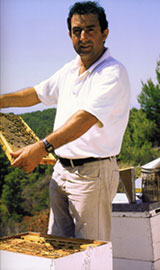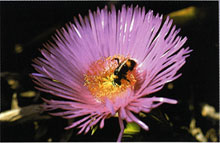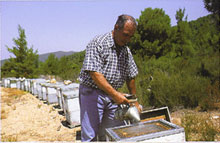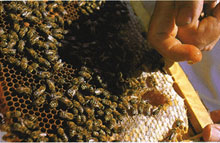|
|
|
Natural Honey
 |
The job of an apiarist of beekeeper is a very highly
regarded profession in Greece. A beekeeper will
keep on average 300 to 500 hives and these will
produce around 55,000 pounds (25,000 kilograms) of
honey per year. Chalkidiki is one of the country's
main honey-producing regions. Beekeepers come here
from all over Greece, drawn by the unspoiled, hilly
countryside with its wealth of flowers and abundance
of pine trees, spruces, and lime trees, all
guarantees of consistency in aroma and high-quality
honey. Honey production is geared to the following
flowers; early June, lime blossom; mid-August,
chestnut blossom (helps stop the honey from
solidifying); the rest of the summer, spruce blossom
(spruce resin makes the honey darker and stronger in
taste). The heather in bloom at the beginning of
September provides the final aromatic ingredient and
the bees close up their honeycombs ready for
hibernation. The honey is now ready for harvest.
Gently stunning the bees with smoke from burning
spruce needles, the beekeeper carefully removes this
precious sweet product. |
 |
|
When the
spring flowers are in bloom on the
Chalkidiki peninsula, the bees are well
catered for. |
 |
|
Even the
beekeeper prefers to stun the bees a little
before attempting to touch the honeycombs. |
 |
|
The
beekeeper samples the honey straight from
the honeycomb. |
|
excerpts from:
"Culinaria Greece" |
Copyright ©2001 - 2008
GreekCuisine.com. All rights reserved.
GreekCuisine.com is part of the
GoGreece.com network
2665 30th Street Suite 214, Santa Monica, CA 90405 USA
|